Atelier Wen Porcelain Odyssey Ji (Hands-On)
Blue horological chic, proudly made in China!
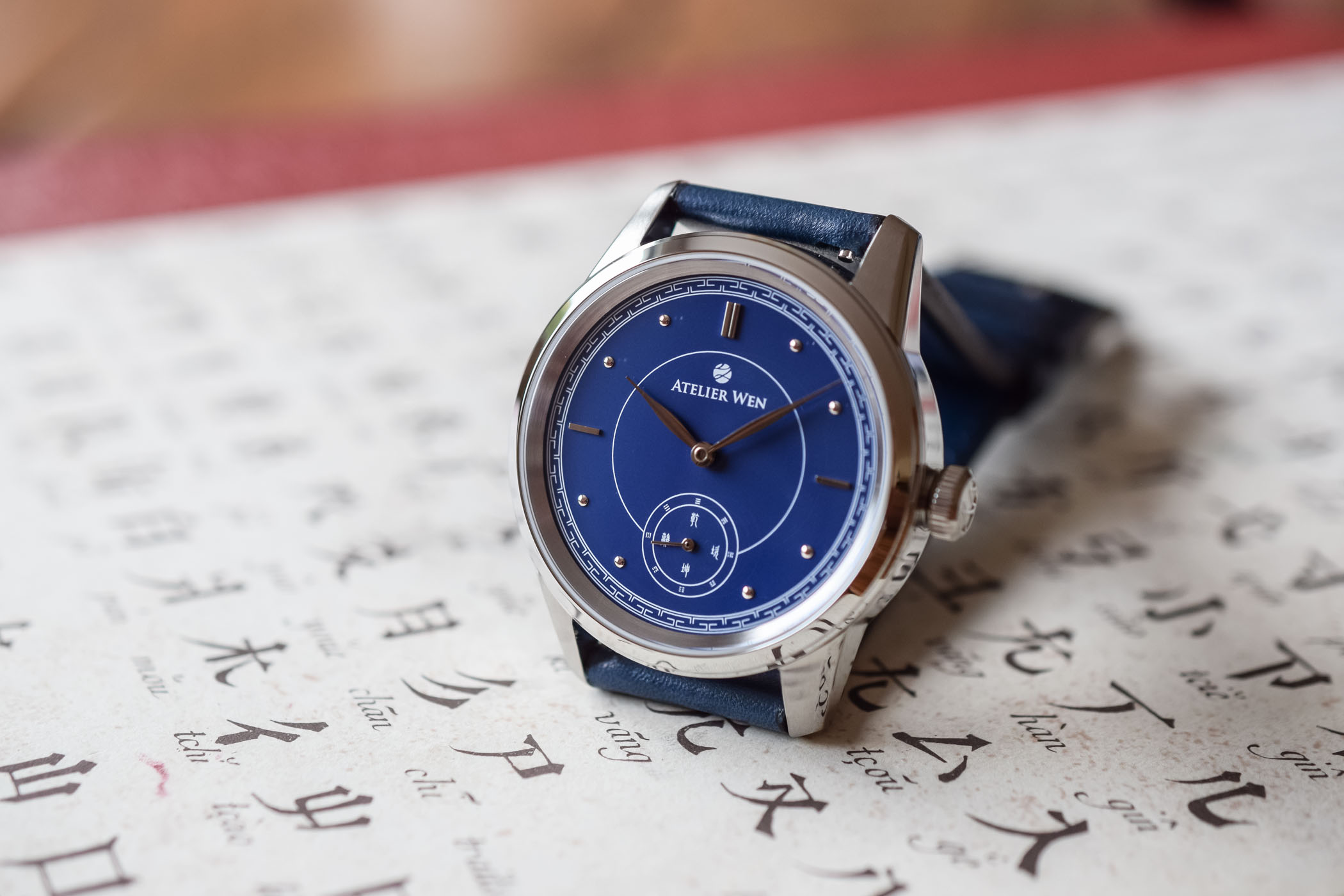
If you are a regular reader of MONOCHROME, you might be familiar with Atelier Wen. A young, cross-cultural brand born from the association of French and Chinese designers. Together, they conceived the idea of creating a Chinese-inspired brand. Their timepieces eschew traditional codes to provide their own cool offbeat take on modern Chinese chic. Watches with a Chinese soul, proudly made in China and offered at an accessible price After taking a look at their first (white) Porcelain Odyssey model named Hao, it is time for us to go hands-on with their blue dial model, this time named Ji.
Quintessential Blue
The Atelier Wen Porcelain Odyssey Ji (?) is named after a specific shade of blue, used in the finest Chinese porcelain. This colour was used as a reference to create its refined blue dial, made out of blue porcelain. The balanced layout combines round and baton applied hour markers paired with elegant leaf-shaped rhodium-plated hands. The all-time Chinese favourite blue-and-white combination is used for all the indications on the dial.
A unique minute track on the periphery features a reinterpretation of a classic Chinese pattern called Huiwen (??). The small seconds sub-dial at 6 o’clock is a homage to the Chinese concept of Bagua (??) or “Eight Trigrams”. It is used, among other things, as a traditional representation of time, with the four central characters, Kun (?), Li (?), Qian (?), Kan (?) representing the four cardinal directions that correspond to the position of the sun in the sky at different times.
With its Porcelain Odyssey, Atelier Wen demonstrate that China can also mean elegance and nice execution.
The Atelier Wen Porcelain Odyssey Ji comes in a sleek 39mm round case, an elegant versatile size that will fit comfortably on most wrists. Fashioned from 316L Japanese steel, it feels modern with clean line and sharp angles. It combines mirror-polished and satin-brushed finishes. Secured by four screws, the solid caseback is engraved in deep relief with a legendary Chinese animal Kunpeng, often used as an allegory for the concept of Yin Yang. Water-resistance is rated to 50m.
Inside the case ticks a Chinese automatic movement, the calibre Peacock SL-3006. This 26mm calibre is a derivate of the SL-3000, itself a clone of the ubiquitous ETA 2824. It runs at 4Hz and can store up to 41 hours of power reserve when fully wound, and, it is adjusted to +/- 10 seconds a day.
The watch is worn on a blue calf leather strap with a steel pin buckle. A quick-release spring bar system allows you to change the watch band easily.
The Atelier Wen Porcelain Odyssey Ji incorporates the chic look of Chinese art into a modern wristwatch – the result is modern and stylish, elegant without falling into kitschy pastiche.
Price and availability
Price is set at a USD 720, which seems very reasonable given the quality of the watch, its porcelain dial and the overall look and feel. It does make Atelier Wen’s watches a worthy option if you enjoy their unique style and cultural connection. The brand offers a two-year warranty and free delivery worldwide. For more information and orders, please visit www.atelierwen.com.

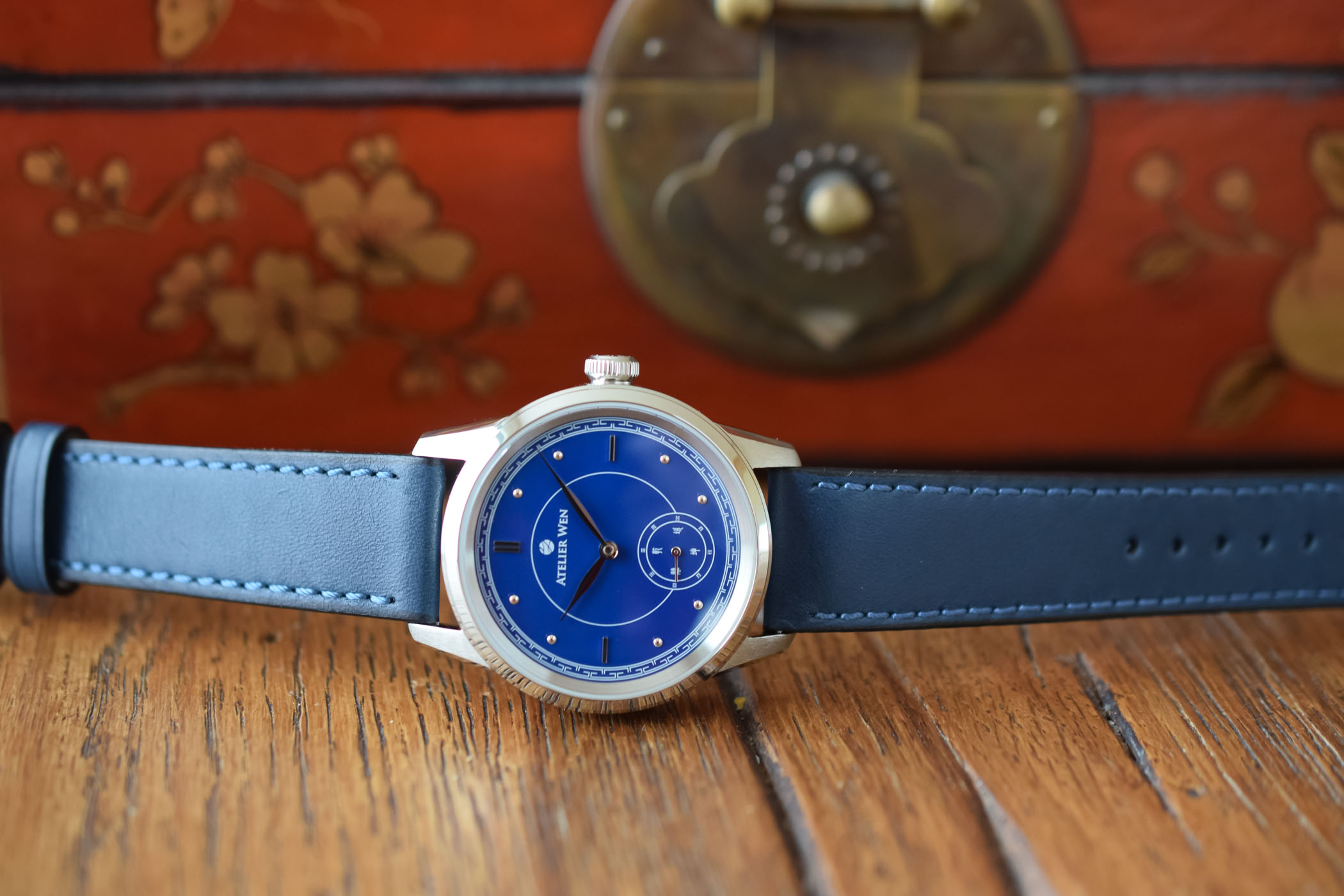
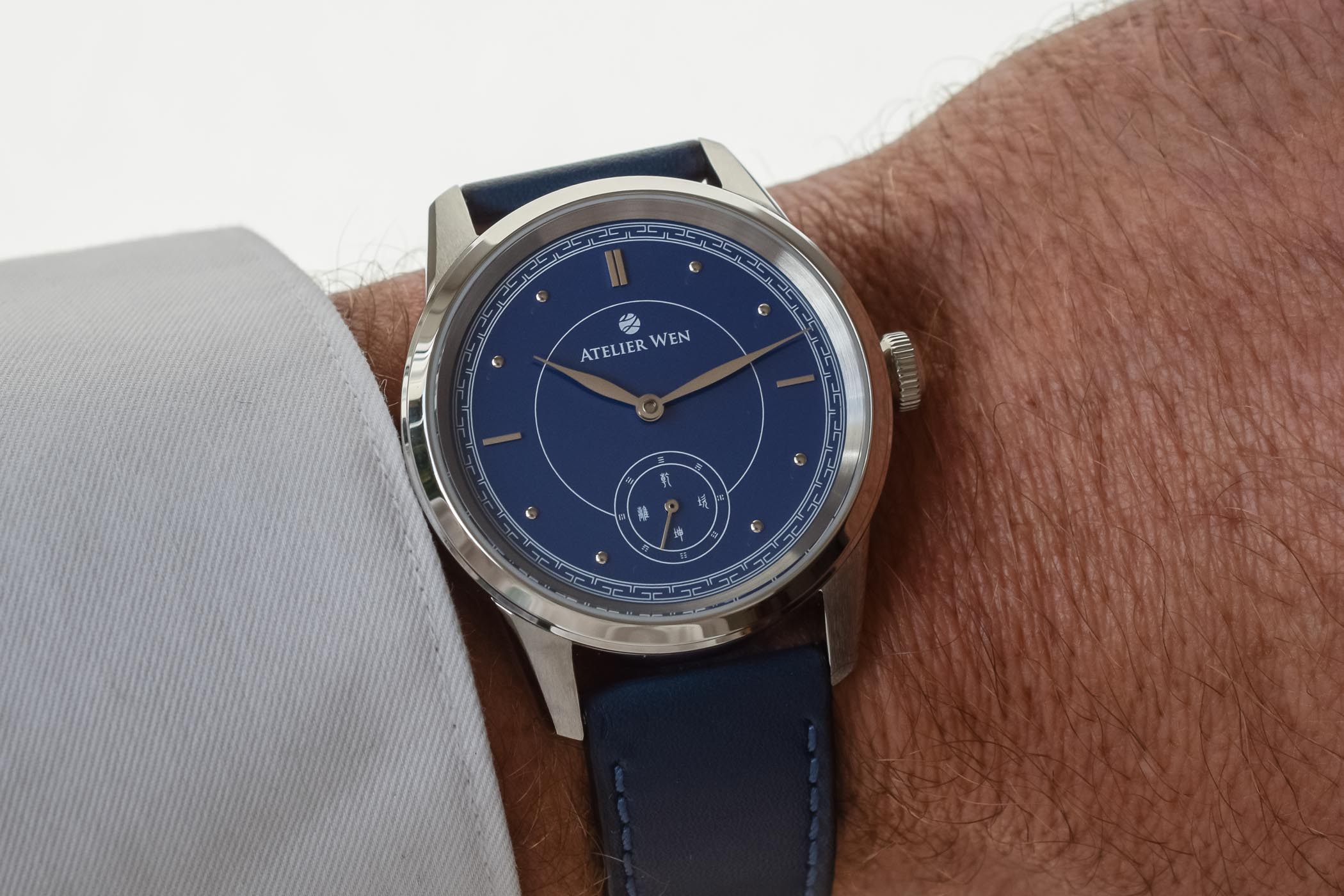
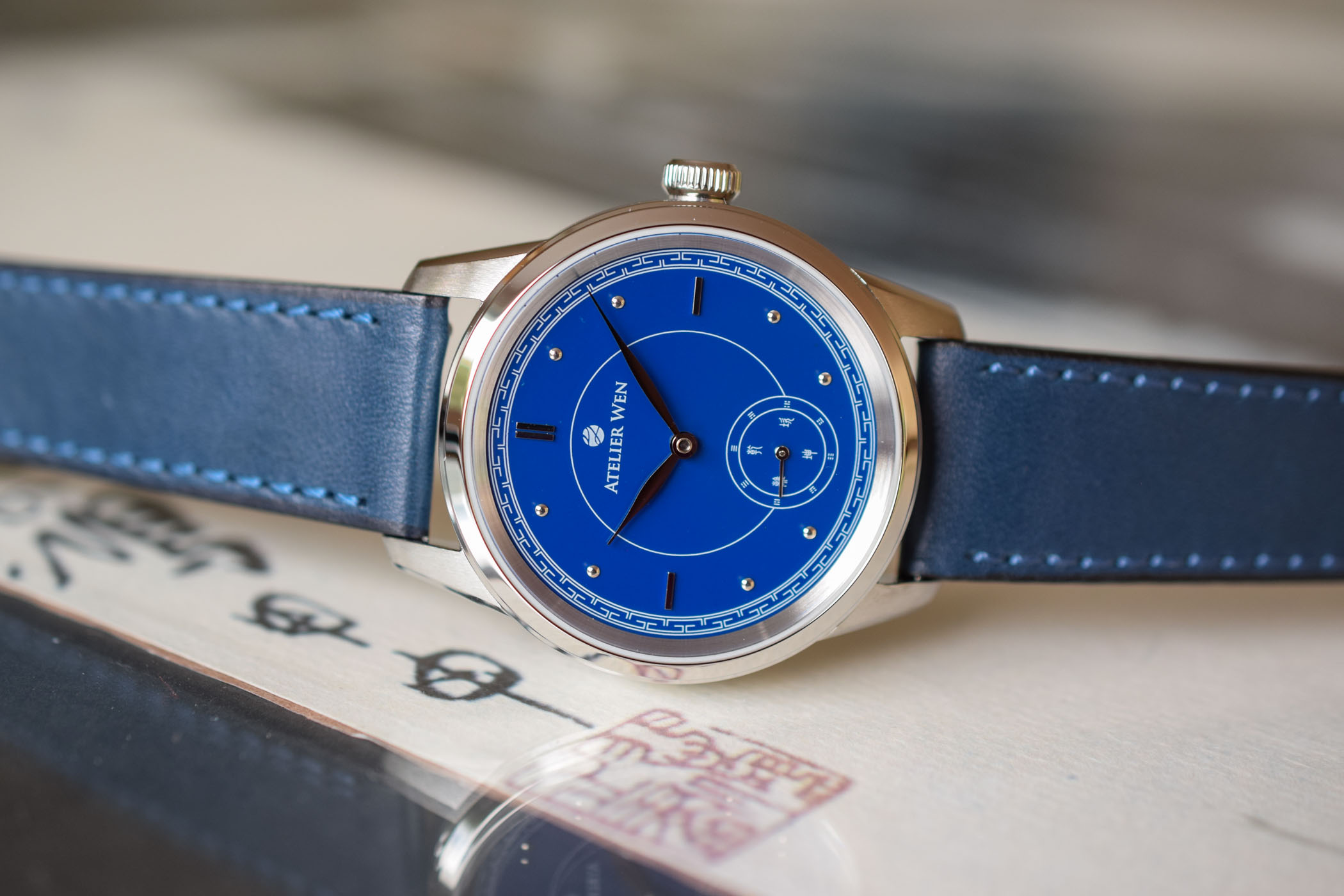
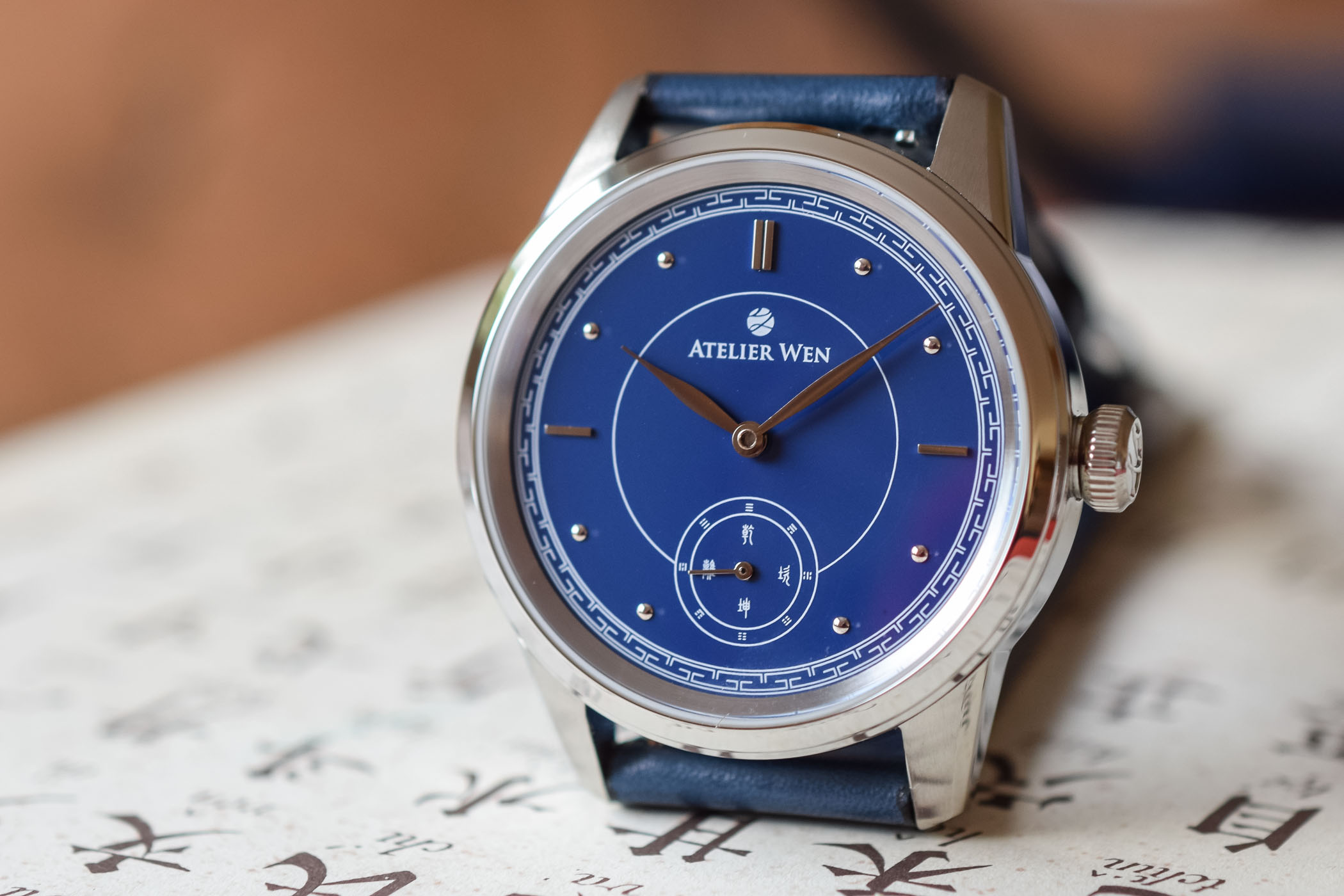
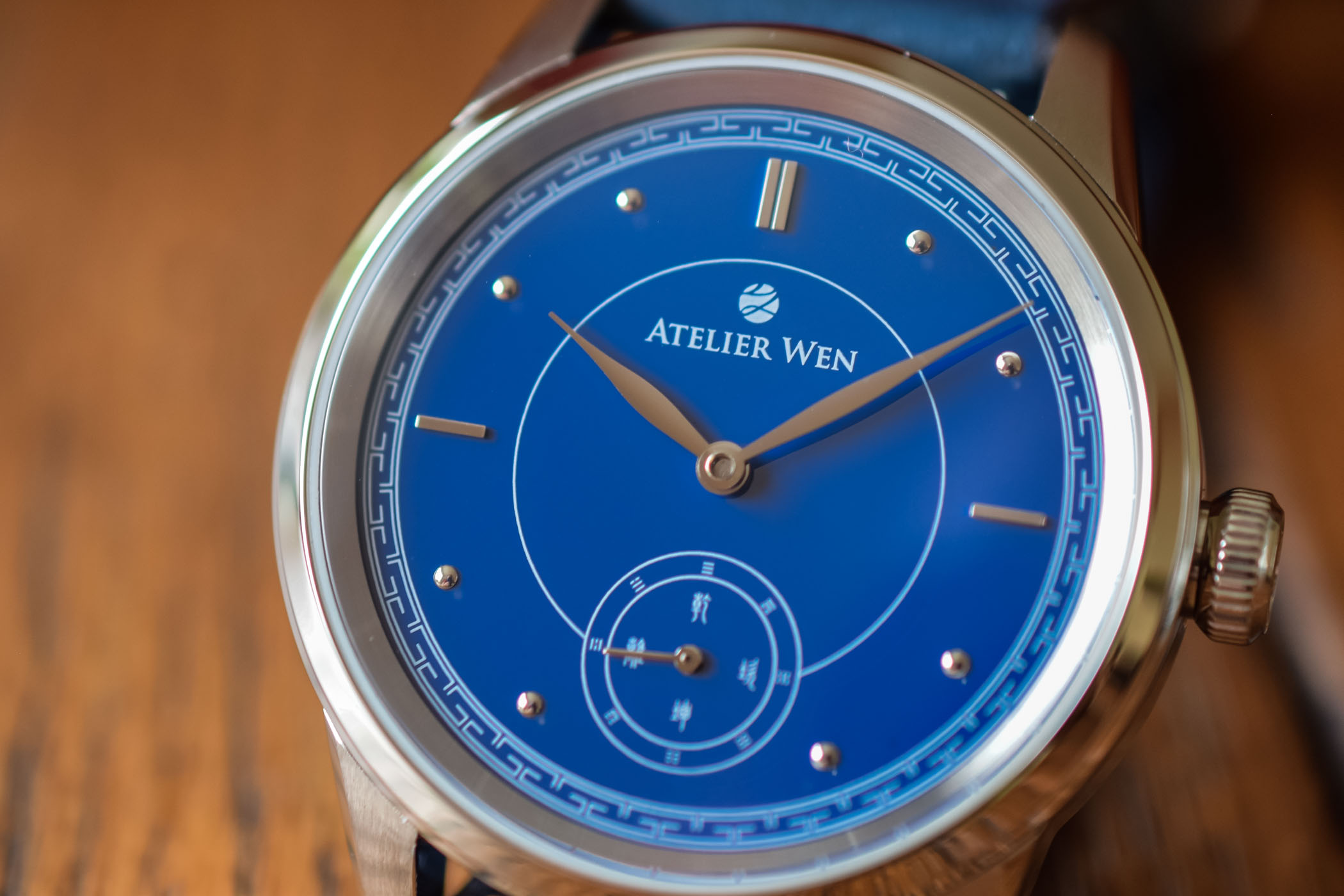
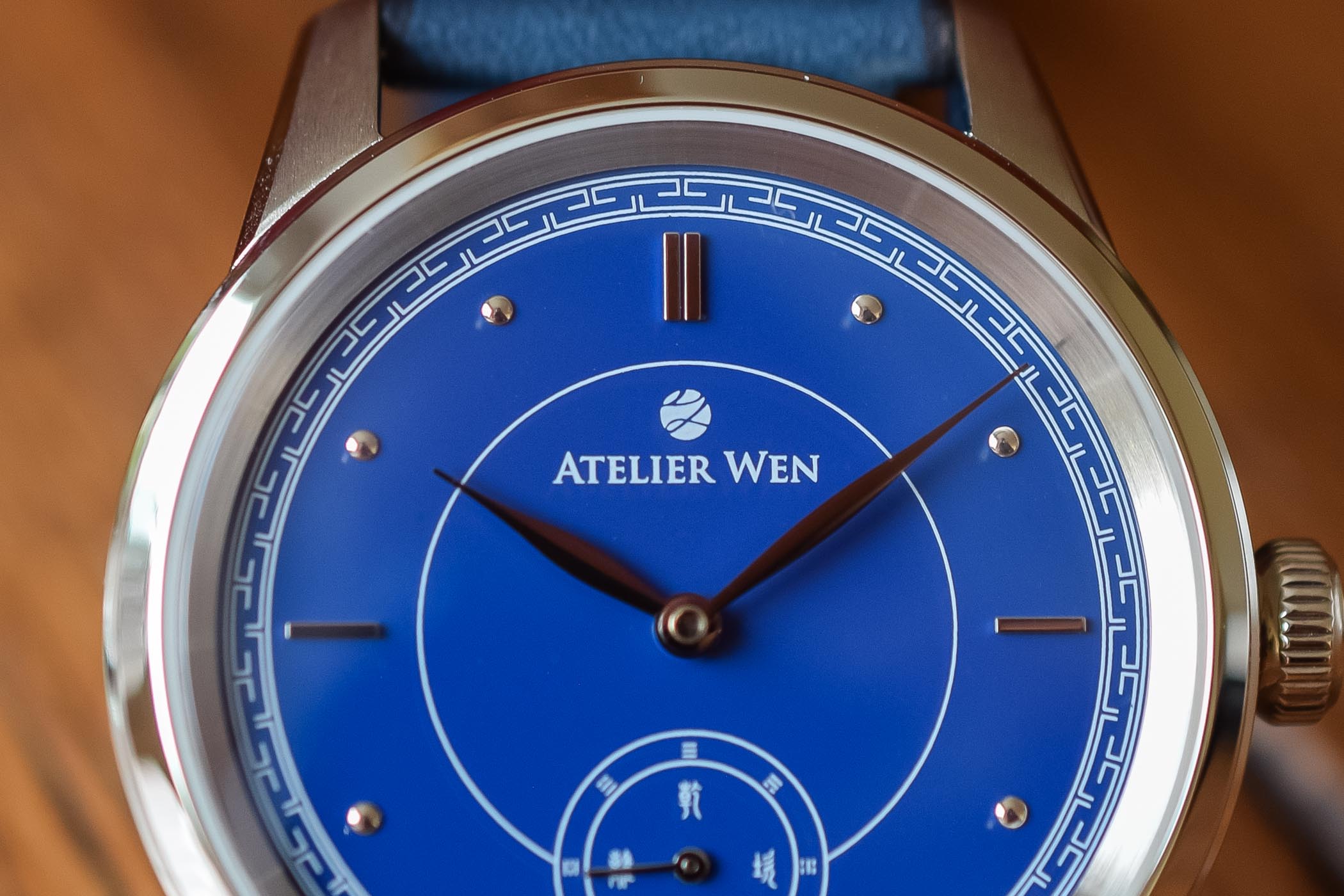
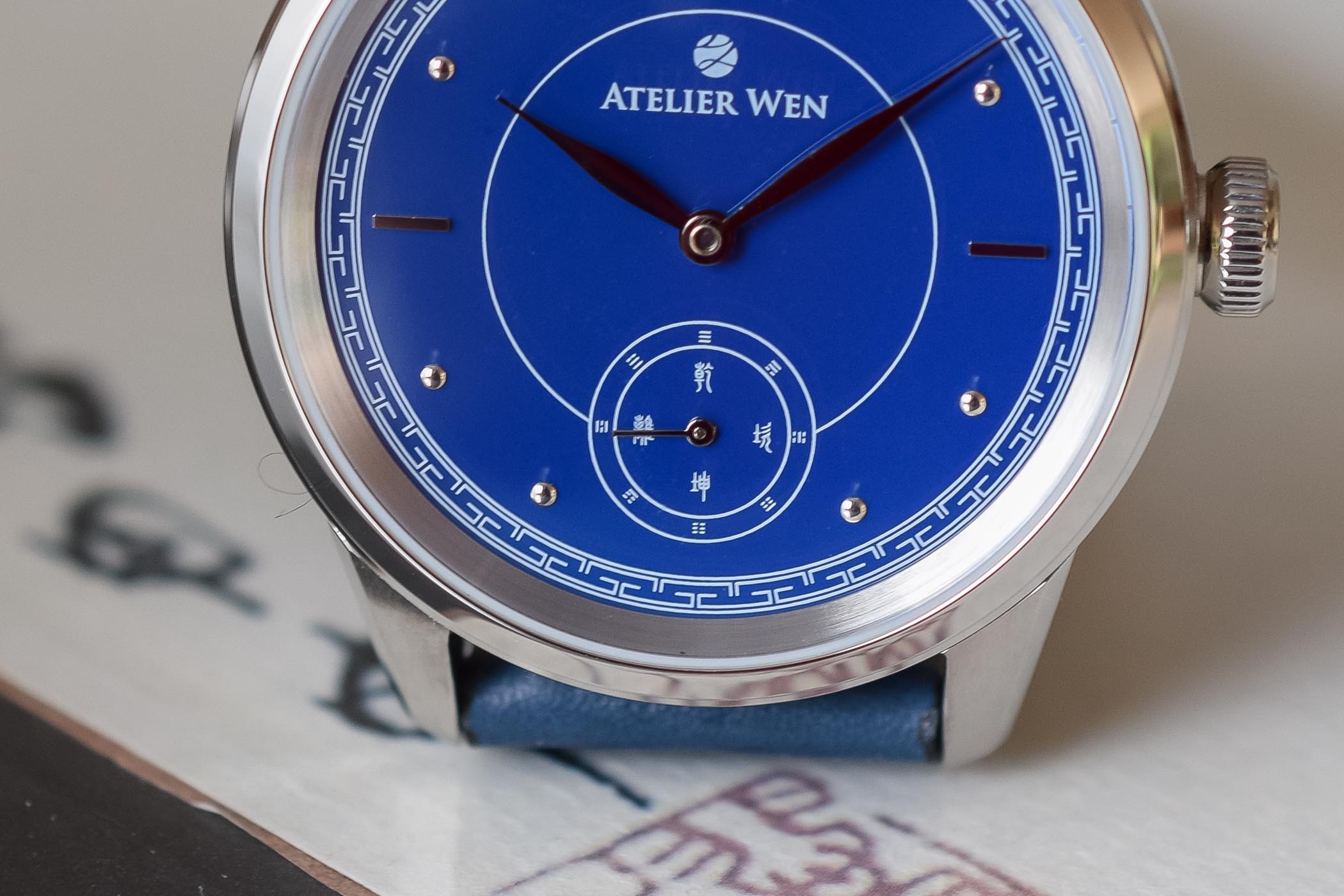
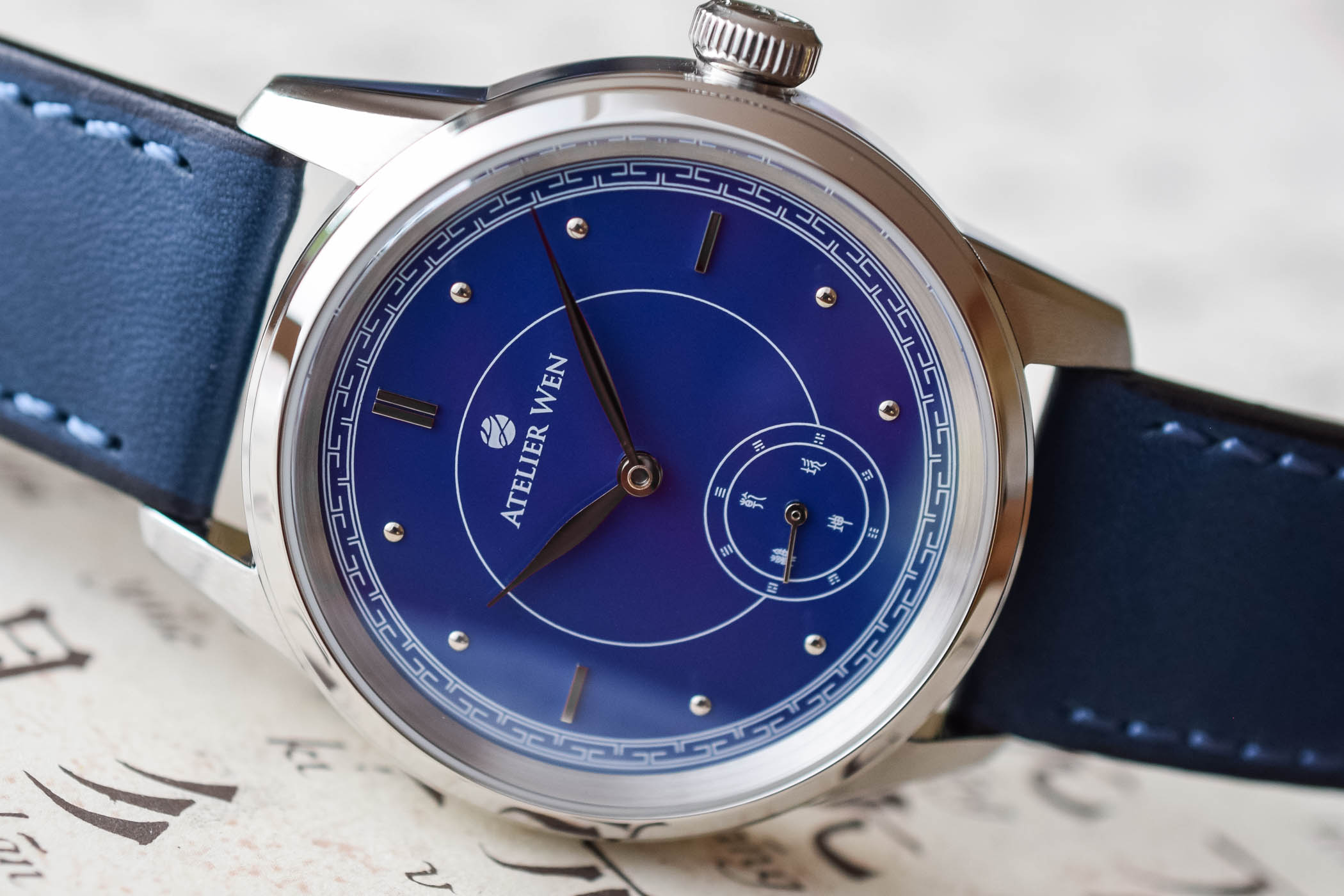
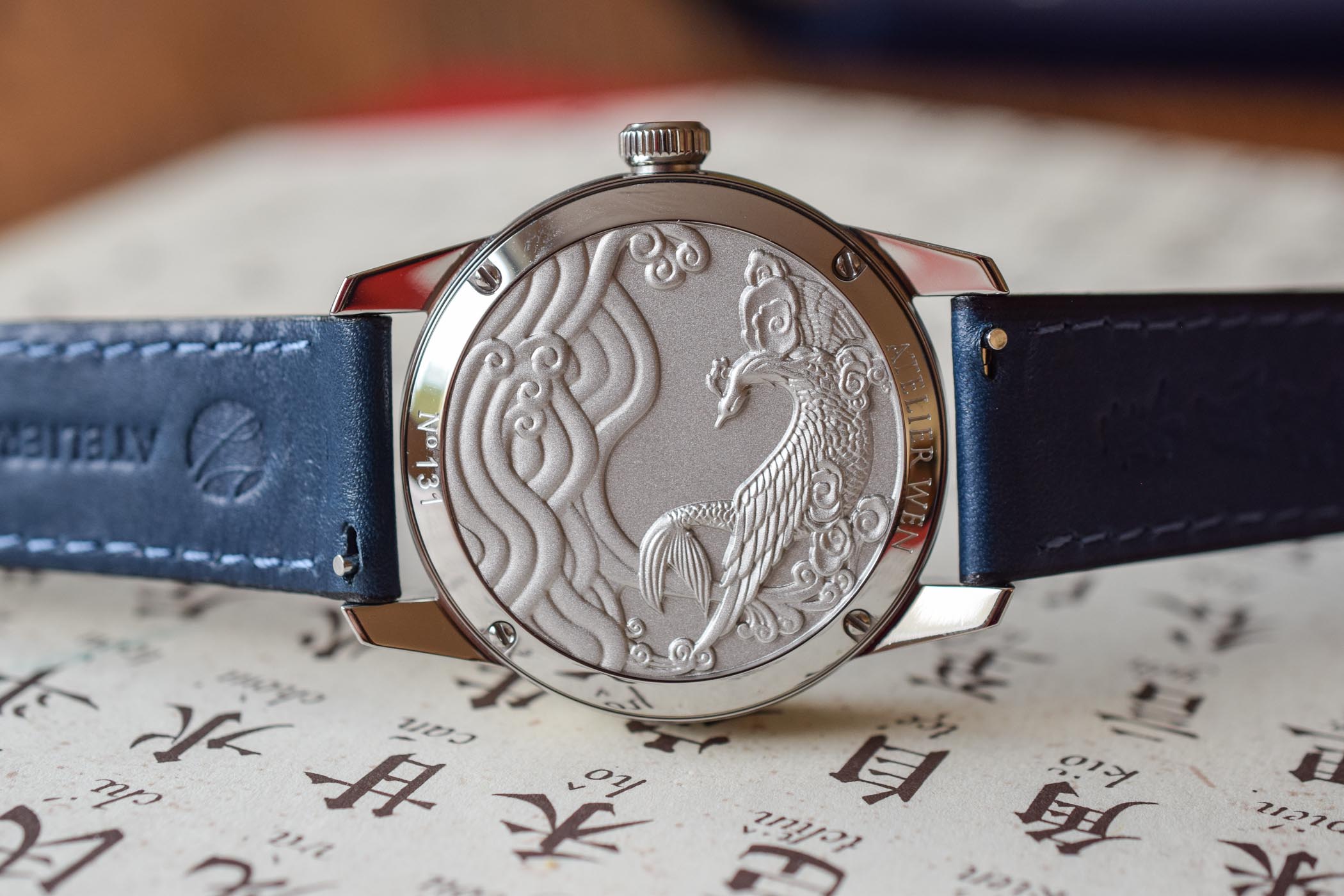
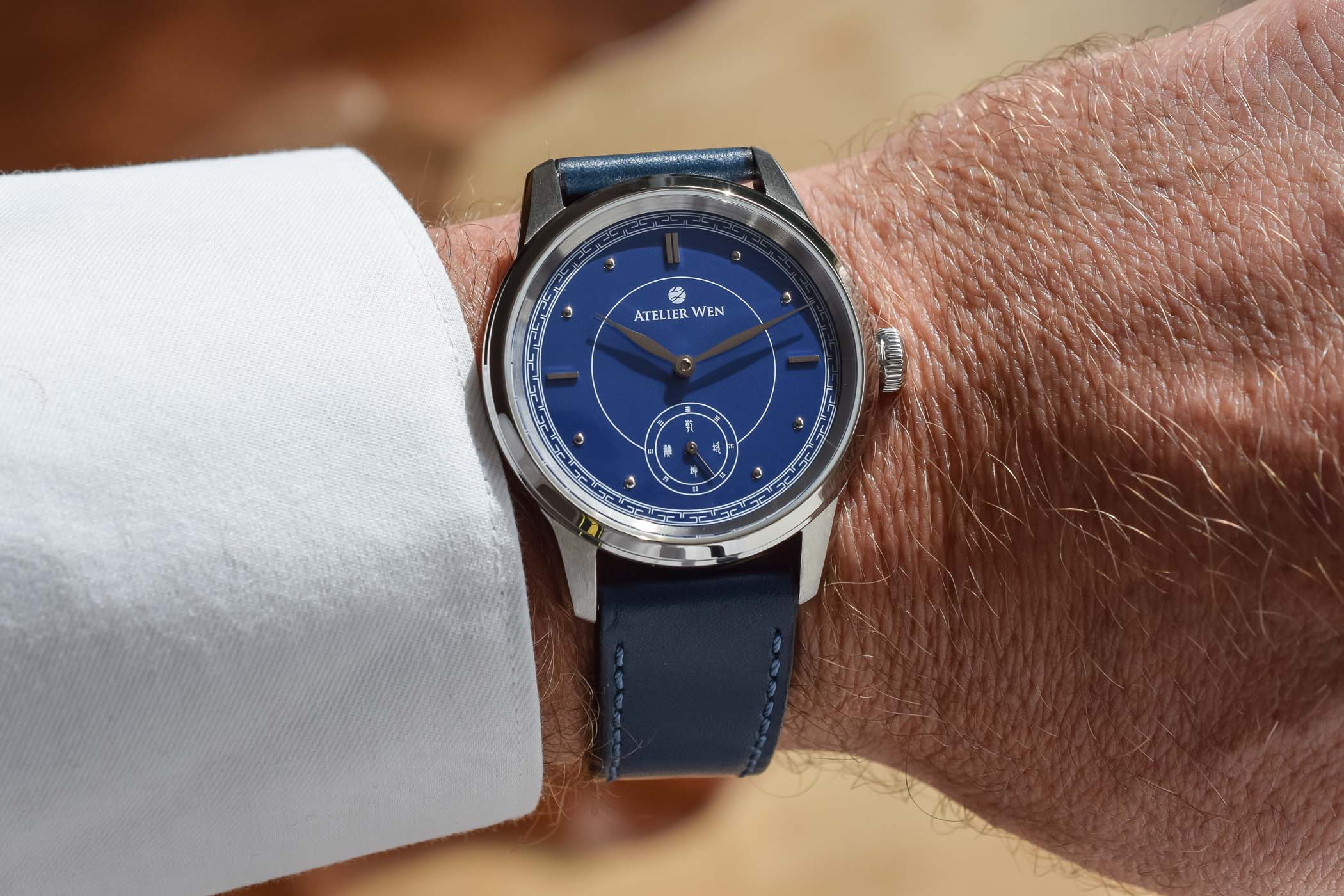
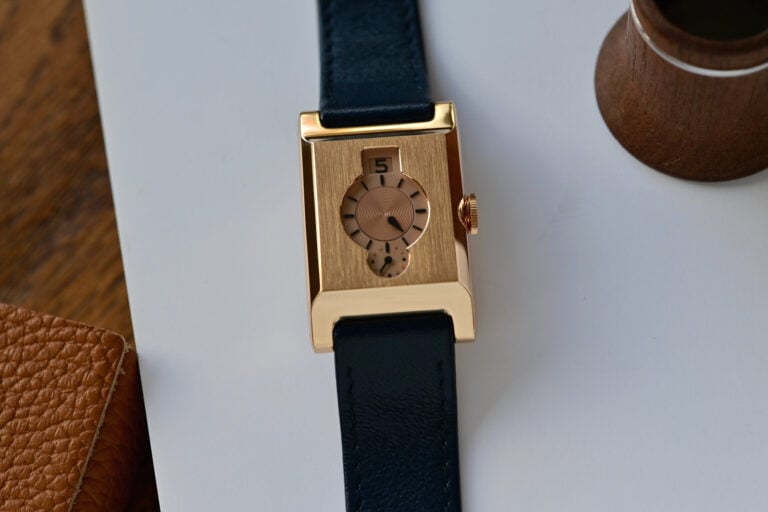
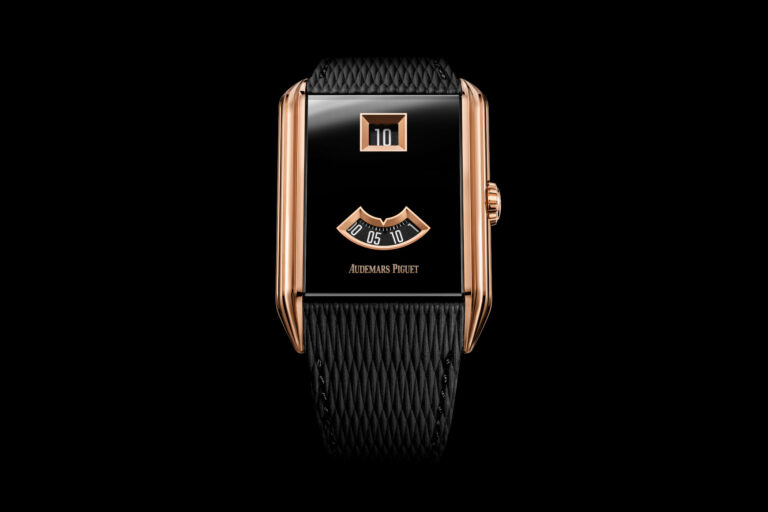
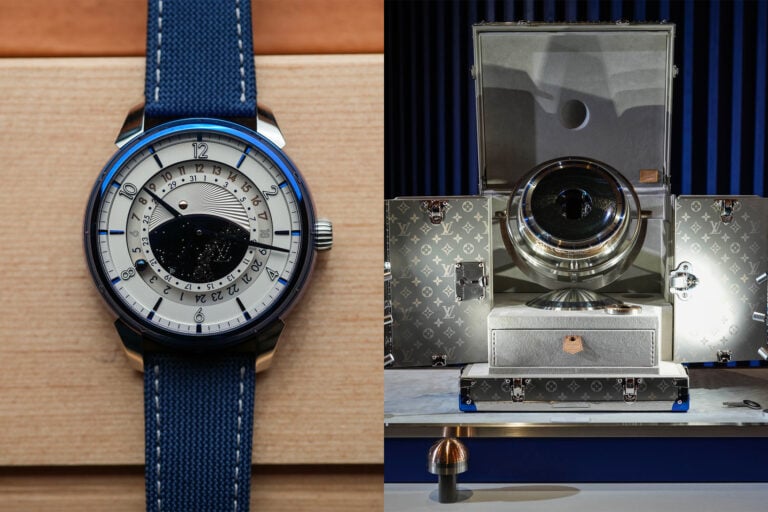
7 responses
White dial with blue lettering would enhance chinese heritage, too. (Ming pocelaine?)
@stanilaw indeed check out their website and you’ll find this variation.
Yes I diid but still they don`t have neccessary finesse. I was rather thinking about real stuff. Ever seen Ming porcelain with blue motives?
I’ve strolled through several museums in China but never seen any label which was more informative than “Qing Dynasty: 1230-1750 approx.”. It’s difficult to get excited about something you don’t know anything about. I was once told by a Chinese friend “this is a very famous statue” but…well without Simon Schama I was lost. 🙁
Having said THAT, I feel the difficulty that most Westerners have with Chinese aesthetics is that we associate complexity with disorder. Just look at any Chinese website. It’s a mess! At least to European eyes. Of course by the same token Google’s homepage looks like it was designed for toddlers to Chinese sensibilities. I recently was honoured to be introduced to Guo Ming, the AHCI candidate from Shanghai, and got to handle some of the pieces he made to be accepted into that august organisation, for which I was very grateful. He undoubtedly has skill (and kindly regulated a misbehaving watch for me at no charge). His pieces are unique and VERY Chinese. He used soft spring colours and complex pictoral enamellingfor one piece. It is fine work, which made the solid gold APs and VCs he had in his professional workshop waiting to be worked on, look rather…prosaic. But I told my friend that The Swiss would not understand what he is doing.This piece has been toned-down and I expect it to sell. The Chinese produce breathtaking works of art. It’s a great pity so few Westerners get to see them. I took my father to a great sculptor’s workshop and asked him what he thought.
“I am overwhelmed” he said.
The porcelain of the Ming Dynasty of China (1368-1644 CE)?
I have seen it.